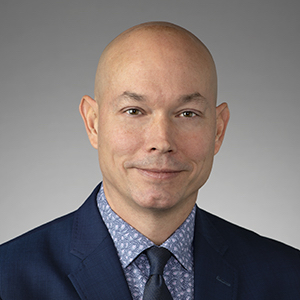Just last week, The New York Times reported that Geoffrey Hinton, the man known as “the godfather of AI,” left Google in order to caution the public about the risks of AI, with concerns ranging from misinformation to risked livelihoods. And on Thursday, the Biden administration rolled out new actions aiming to promote AI innovation while protecting citizens’ rights and safety.
The healthcare industry is no exception to having AI on the brain. University of Pittsburgh Medical Center (UPMC) Chief Technology Officer Chris Carmody told Technical.ly the Pittsburgh healthcare system has been using artificial intelligence and machine learning for years, and is now considering new ways the technology could improve patient care.
Consider Abridge, the startup behind an AI-powered app that records and condenses conversations between patients and doctors so healthcare providers can access the most important info from an interaction quickly. The company also happens to be a spinout of the UPMC Enterprises division.
Carmody pointed to Abridge as an example of how AI could benefit both healthcare providers and patients. Another example of AI being used in the healthcare system, Carmody said, was during the height of the pandemic when UPMC began using Text Analytics, a Microsoft tool, to extract data from medical text (think doctor’s notes, discharge summaries and electronic records) for physicians to use while studying the treatment and outcomes of COVID-19 patients.
“As we proceed, we do it very cautiously.”Chris Carmody UPMC
“We obviously didn’t have a history of COVID patients and all the different symptoms and all the other information that was related to every patient that came through our doors,” Carmody said. “So basically, in real-time [we] were learning as we were getting more and more patients, and over the course of the pandemic, we were processing all this unstructured data.”
An area of focus for UPMC, the CTO said, is looking at the different ways AI could assist in handling data. He also sees for UPMC the potential to create its own AI-powered chatbots to help patients get answers to questions about their healthcare coverage and other benign questions related to treatment options.
“They can use the Chat-GPT-like chatbots to answer those questions,” he said, “versus talking to a human being, and get just as good of an answer and response as they would calling them up on the telephone.”
Yet the healthcare system isn’t planning to replace its employees with AI. The goal instead is for AI to work alongside healthcare professionals and make their jobs easier, as opposed to taking them away. Think of it like “another tool in the tool belts of our clinicians,” Carmody said, “helping make them more efficient, more effective and delivering better patient outcomes.”
Looking forward, Carmody expects an iterative process with a lot of testing before such a chatbox could be fully deployed.
“As we proceed, we do it very cautiously,” he said. “We make sure that our health plan members and our patients’ data, their privacy and their data, is secure. And we test and validate any way we will use these types of technologies as we move forward. And that’s how we’ve always done things at UPMC.”







